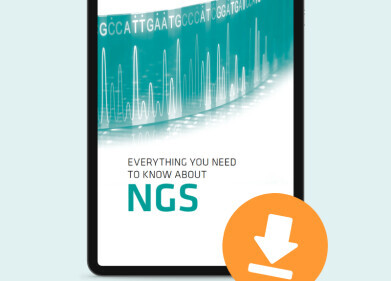Laboratory Products
Is 'Morning Sickness' Misleading?
Jul 10 2020
A new study led by researchers at the University of Warwick argues the term ‘morning sickness’ is misleading and should instead be described as ‘nausea and sickness during pregnancy.’ In an analysis of 256 pregnant women, the team found that while symptoms are most common in the morning, prenatal-related queasiness and vomiting can occur at any time of the day.
“The continued use of the term 'morning sickness' could imply that symptoms only rarely occur in the afternoon and evening so that sufferers will have significant parts of the day symptom-free,” reads the study abstract. “This study shows that this is an incorrect assumption and that symptoms, particularly nausea, can occur at any time of the day."
Mapping ‘morning sickness’ patterns
It’s the first study to map ‘morning sickness’ patterns, with the team arguing the misleading term should be replaced with something more general. The findings were published in the British Journal of General Practice and explain how the team used daily symptom diaries to track the experiences of more than 250 pregnant women. The women were asked to record their symptoms every hour for two months, starting from the day they confirmed they recorded a positive pregnancy test result. The team then used this data to break down the average timeline of ‘morning sickness’ and found that while vomiting is most common between 7am and 1pm, nausea can regularly occur throughout the day.
"Morning sickness is widely used by the general public, media and even healthcare professionals but it doesn't give an accurate description of the condition,” says Roger Gadsby, an Associate Clinical Professor at the Warwick Medical School. "If a pregnant woman experiences sickness in the afternoon she may feel that this is unusual and wrong, or if she experiences no vomiting but feels nauseated all day she might think she is not covered by the term 'morning sickness'. And those women who experience severe symptoms feel it trivialises the condition.”
Normalising sickness during pregnancy
For Gadsby, the study highlights the importance of increasing awareness of nausea and sickness during pregnancy and normalising the experience. "Nausea and vomiting in pregnancy (NVP) can have a significant negative impact on the lives of sufferers,” he adds. “It can cause, feelings of depression, of being unable to look after the family, and of loss of time from paid work. Very severe NVP called hyperemesis gravidarm (HG) is the commonest cause of admission to hospital in the first trimester of pregnancy."
“Referring to nausea and vomiting in pregnancy as simply ‘morning sickness’ is inaccurate, simplistic, and therefore unhelpful,” reads the study conclusion.
From prenatal studies to gene therapy research, medical science is bolstered by state-of-the-art equipment. Find out more about the rapidly expanding global biotechnology industry in ‘Choosing the right safety cabinet to advance your gene therapy research.
Digital Edition
Lab Asia 31.2 April 2024
April 2024
In This Edition Chromatography Articles - Approaches to troubleshooting an SPE method for the analysis of oligonucleotides (pt i) - High-precision liquid flow processes demand full fluidic c...
View all digital editions
Events
Apr 22 2024 Marrakech, Morroco
Making Pharmaceuticals Exhibition & Conference
Apr 23 2024 Coventry, UK
Apr 23 2024 Kintex, South Korea
Apr 23 2024 Seoul, South Korea
Apr 24 2024 Jakarta, Indonesia

.jpg)


.jpg)













